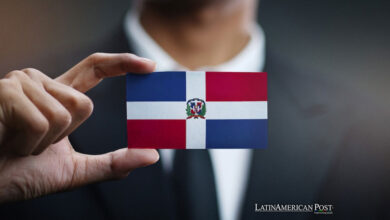Venezuelan refugees in Colombia: A social problem for the host country?
Is the South American nation ready to tackle the financial consequences that come with helping its neighbors?

The recent social, economic, and political crisis faced by Venezuela has created an increasing amount of migration to different countries. The main destination of these migrants has been Venezuela’s neighboring countries, such as Brazil and Colombia. In Colombia, for example, the situation is rather particular. In January 2017, 47,095 Venezuelans entered Colombia, which is more than twice the migration, coming from said nation, for the same period back in 2016.
This migration, which is starting to be treated like a refugee crisis, has been facilitated by the fact that Venezuela and Colombia have shared history, a common border of 2,219 kilometers, and a similar culture. Indeed, the Colombian government has recently softened its migration regulation, so that Venezuelans are able to obtain a legal status in Colombia, which would, in return, help the government collect taxes and social security. Despite these efforts, the problem still lies on the fact that many Venezuelans are illegal residents, meaning that they don’t have social security, and usually come with children, who maybe not be allowed to go to school because of their lack of documents.
This is all aggravated by the fact that despite the peace agreement, forced internal displacement in Colombia has continued to grow, according to the United Nation Refugee Agency. As of March 2017, 3.549 citizens have been displaced, and in 2016, 11,363 were displaced by force out of their property. In terms of overall dislocation, Colombia ranks second as Syria ranks first.
With the peace agreement with FARC, Colombia’s president Juan Manuel Santos is committed to ensure the victims right’s, including those of the displaced people as a consequence of the internal conflict, but the peace arrangement also implies more public expenditure placing Venezuelan refugees in a disadvantage. The problem here is that the Bretton Woods institutions, specifically the International Monetary Fund, requires for reduction in the area of public expenditure so that countries are able to take out loans.
We will have to wait and see if Santos and his successors are capable of handling the Colombian’s society’s new needs without putting the South American nation at financial risk.
Latin American Post | Juan Cabrera
Copy edited by Susana Cicchetto




